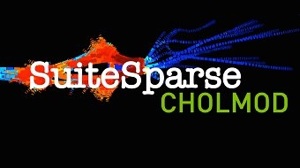 Dr. Tim Davis, professor of computer science and engineering at Texas A&M University, developed SuiteSparse, a software package that supports GPU-based CUDA acceleration. SuiteSparse was recently added to a very short list of software libraries maintained by NVIDIA.
Dr. Tim Davis, professor of computer science and engineering at Texas A&M University, developed SuiteSparse, a software package that supports GPU-based CUDA acceleration. SuiteSparse was recently added to a very short list of software libraries maintained by NVIDIA.
SuiteSparse is a suite of sparse matric algorithms.
"The large matrices that arise in real-world problems in science, engineering, and mathematics tend to be mostly zero, or sparse," said Davis. "Sparse matrix algorithms lie in the intersection of graph theory and numerical linear algebra. A graph represents the connections between variables in the mathematical model, such as the voltage across a circuit component, a link from one web page to another, the physical forces between two points in a mechanical structure, and so on, depending on the problem at hand."
"My research spans the spectrum of theory, algorithms, and software development in the area of sparse matrix and graph algorithms. I'm not just interested in creating new methods and software prototypes to demonstrate those methods. I pursue the code further to produce better-than-commercial-quality software that embodies these new methods. Nine of my codes appear as Collected Algorithms of the ACM, where they undergo rigorous peer-review testing for their research contributions and software quality."
Before joining the faculty in the Department of Computer Science and Engineering this fall, Davis was a professor at the University of Florida. He received his doctoral degree from the University of Illinois at Urbana-Champaign in 1989 and worked as a postdoc at CERFACS in Toulouse, France.
Davis is a member of Parasol Lab at Texas A&M and was recently elected as a Fellow of the Society of Industrial and Applied Mathematics (SIAM), "for contributions to sparse matrix algorithms and software, including the University of Florida Sparse Matrix Collection." He is an associate editor of the ACM Transactions on Mathematical Software and the SIAM Journal on Scientific Computing.